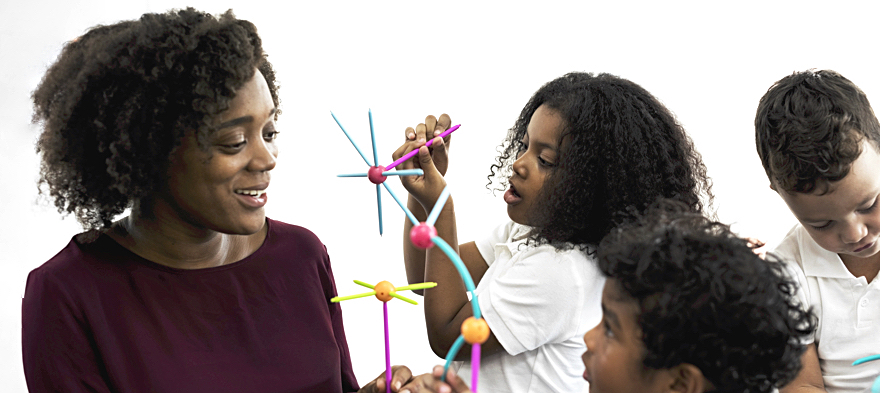
I am a middle school science teacher. When covering the laws of physics, I teach that “every action has an equal and opposite reaction.” This statement has applications beyond Newtonian formulas. I have always been impassioned by social justice and demonstrated admiration for my students, but witnessing the disheartening actions of a former colleague inspired me to become an advocate for teacher diversity.
While working as a graphic design assistant teacher in Boston, I reported to a supervisor whose actions were led by his biases. I noticed that he would consistently instigate conflicts with Black male students. One day, he became extremely hostile towards two students. To prevent the situation from escalating, I escorted them out of the classroom and addressed my supervisor after school.
“It’s their parents,” he stated. He described how the Black community was inept at servicing their youth and cited the crack epidemic as his rationale. He claimed that Black communities were drug dependent and many of our students were born to addicts or teenage parents. He affirmed that teachers needed to be “tough” on students from these communities to improve their lives. As he was defending his behavior, he refused to acknowledge any personal bias. [pullquote position="right"]While all teachers need cultural competence to connect with their students, I realized at this moment that teacher diversity is also vital.[/pullquote]
Anyone familiar with the legacy of our country knows its roots are marred by genocide, exile and enslavement. In 2020, individuals in positions of power continue to act with bias due to the differences between themselves and the populations they serve; this is inclusive of police officers, medical providers, and educators. Now more than ever, action must be taken to address the racial and social injustices of this country. In education, the best way to do that is to increase educator workforce diversity.
[pullquote]More than half of all public school students are kids of color, yet the teaching workforce remains overwhelmingly white[/pullquote]. While a recent survey found teachers nearly unanimously agree that diverse classrooms benefit students, less than half said their school “often” meets the needs of students of color. Hiring more teachers of color can help students who share their backgrounds overcome crippling obstacles, such as the bias my two students faced.
Research makes the case for teacher diversity as well. Students of color benefit socially and academically from seeing teachers reflect their experiences and racial identities. Furthermore, all students benefit from being taught by a diverse set of teachers, who can be role models and make school a more welcoming environment.
Budget challenges from COVID-19 will make progress more challenging in many areas, but teacher diversity doesn’t have to be one of them. For example, all levels of government can expand programs that recruit and support historically underrepresented teaching candidates.
I am a graduate of the NYC Teaching Fellows program, which has had success in preparing educators of color for high-needs subjects. Furthermore, we can provide financial incentives to attract and retain a talented and diverse pool of educators. The teacher survey also found teachers overwhelmingly favor financial incentives for those teachers in hard-to-staff schools (86%) and specializing in hard-to-fill subjects (80%), which are disproportionately teachers of color. [pullquote]Expanding teacher diversity would lay the foundation for students to become agents of social change, regardless of their background.[/pullquote]
As educators, we must be driven to steer our students towards success. As leaders, we must advocate for policies that will uplift future generations. As intellectuals, we must be guided by the foresight that we will improve the climate of education. As members of our collective society, we must challenge the biases present in the hearts and minds of so many as we work towards justice and equality. It’s time that we advocate to better represent our student populations in the pursuit of equality and justice.
Liz Haela is a middle school teacher in the Bronx and a member of Educators for Excellence-New York
The fight for educational equity has never been just about schools. The real North Star for this work is providing opportunities for each child to thrive into adulthood. This means that our advocacy...
Your donation will support the work we do at brightbeam to shine a light on the voices who challenge decision makers to provide the learning opportunities all children need to thrive.
Ed Post is the flagship website platform of brightbeam, a 501(c3) network of education activists and influencers demanding a better education and a brighter future for every child.
© 2020–2024 brightbeam. All rights reserved.